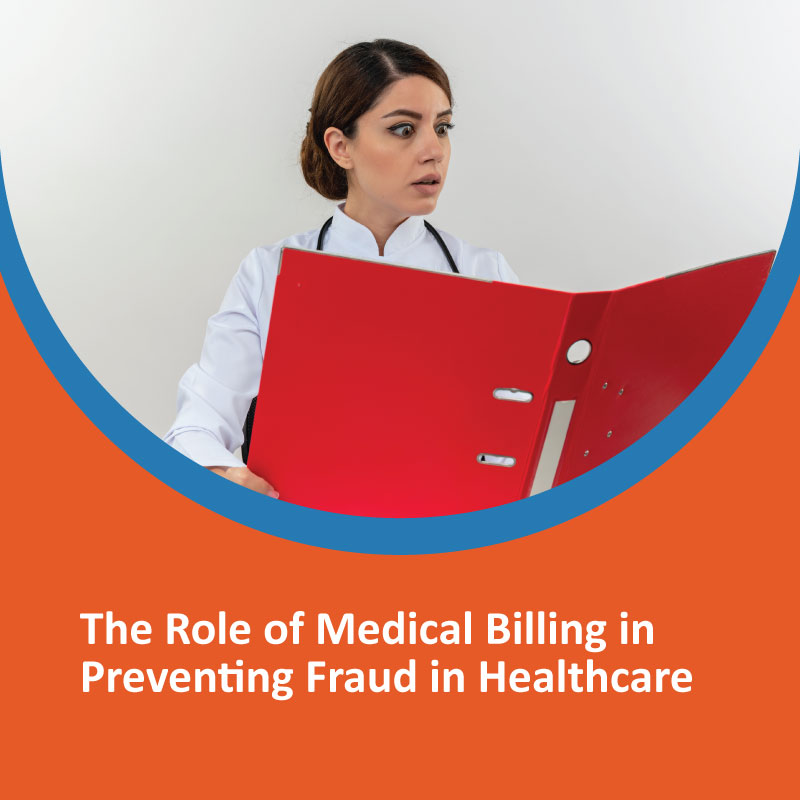Medical billing plays a crucial role in the functioning of healthcare systems worldwide. Beyond its primary purpose of facilitating reimbursement for services provided, it also serves as an essential tool in preventing fraud within the healthcare sector. Fraudulent activities in healthcare, such as billing for services not provided, upcoding, or falsifying patient records, can result in significant financial losses, compromised patient care, and legal consequences. Medical billing, when properly implemented, acts as a safeguard against these activities and ensures the integrity of the healthcare system.
Top Benefits of Hiring a Credentialed Medical Assistant for Your Practice.
Understanding Medical Billing and Its Importance
Medical billing is the process of translating healthcare services into standardized codes, which are then submitted to insurance companies for payment. This process involves documenting the procedures, diagnoses, and treatments provided by healthcare professionals and converting them into specific codes, such as ICD-10 codes (International Classification of Diseases), CPT codes (Current Procedural Terminology), and HCPCS codes (Healthcare Common Procedure Coding System). These codes are then sent to insurance carriers or government programs like Medicare and Medicaid for reimbursement.
Efficient medical billing not only ensures that healthcare providers are compensated fairly for their services, but also enhances the quality of care patients receive by maintaining accurate and complete records. However, when medical billing processes are not properly managed, they can become susceptible to fraudulent activities.
Types of Healthcare Fraud
Healthcare fraud comes in various forms, and medical billing is often the focal point. Some of the common types include:
- Upcoding: This occurs when a healthcare provider submits a bill for a more expensive service or procedure than what was actually provided. It inflates the cost of care and leads to improper reimbursement.
- Unbundling: This happens when a provider submits separate bills for services that should be billed as a bundled package. This practice increases the total cost of services and misrepresents the actual services rendered.
- Phantom Billing: Providers may bill for services that were never provided, such as submitting claims for tests, procedures, or medications that were never administered to the patient.
- Kickbacks: In some cases, healthcare providers may receive illegal financial incentives from pharmaceutical companies, suppliers, or other entities in exchange for overbilling or unnecessary treatments.
- False Documentation: Altering patient records to justify unnecessary treatments or procedures is another form of fraud. This may involve changing patient diagnoses to align with services that are not medically necessary.
How Medical Billing Helps Prevent Fraud
- Verification of Services Rendered: A key aspect of medical billing is ensuring that the services billed match the services provided. This requires accurate documentation and verification. Through electronic health records (EHR) and billing software, healthcare providers can ensure that each claim submitted for reimbursement is based on real, documented services. This process helps prevent fraudulent claims such as phantom billing and upcoding.
- Automated Audits and Alerts: Modern medical billing systems often come equipped with built-in auditing tools. These tools can flag anomalies such as inconsistent billing practices, incorrect codes, or claims that appear unusual compared to industry standards. Automated alerts help prevent errors before claims are submitted and provide a first line of defense against fraudulent activities.
- Coding Accuracy: Proper coding is essential in preventing fraud. Medical billing involves precise coding of procedures and diagnoses to reflect the exact nature of the services provided. Incorrect coding, either due to negligence or intentional manipulation, is one of the most common ways fraud occurs. Training and certification programs for medical coders and billers ensure that they understand the importance of coding accuracy. These professionals are also required to stay updated on the latest coding guidelines to prevent errors.
- Cross-Referencing Claims: Healthcare payers (insurance companies and government programs) cross-reference claims with other sources, such as patient records and previous billing history. This helps detect inconsistencies and irregularities. If a claim doesn’t align with the patient’s medical history, it is flagged for further review.
- Compliance with Regulatory Standards: Strict regulations, such as the Health Insurance Portability and Accountability Act (HIPAA) and the False Claims Act, require healthcare providers to follow specific procedures for billing. These laws enforce transparency and demand accurate reporting. Compliance officers and auditors in healthcare organizations ensure that medical billing adheres to these standards, reducing the risk of fraudulent activities.
- Training and Education: Medical billers and coders receive specialized training in both the technical aspects of their jobs and the legal requirements surrounding healthcare fraud prevention. This ensures they can identify potentially fraudulent activity and report it promptly. Continuous education programs ensure that the workforce is always aware of the latest methods for preventing fraud.
- Collaboration with Law Enforcement: Healthcare organizations often collaborate with governmental bodies and law enforcement agencies, such as the Office of the Inspector General (OIG) and the Department of Justice (DOJ), to combat fraud. By reporting suspicious billing practices, healthcare providers contribute to larger fraud prevention initiatives. Additionally, legal consequences for those found guilty of committing fraud act as a deterrent.
The Benefits of Fraud Prevention in Medical Billing
- Financial Savings: Preventing fraud protects healthcare organizations from the financial strain of incorrect claims and penalties. By ensuring that claims are legitimate, organizations can reduce costly audits and the risk of losing reimbursement.
- Enhanced Reputation: Healthcare providers with strong fraud prevention policies build trust with patients and insurance companies. A solid reputation for integrity is crucial in maintaining patient loyalty and securing ongoing relationships with insurers.
- Improved Patient Care: Preventing fraud ensures that resources are used appropriately, benefiting patients by ensuring that only necessary treatments are administered. Fraudulent billing practices often lead to unnecessary procedures that can expose patients to harm or risk.
- Legal Protection: By adhering to proper billing practices, healthcare providers reduce their legal exposure. Organizations that comply with healthcare fraud regulations are less likely to face lawsuits or government investigations.
Conclusion
The role of medical billing in preventing fraud in healthcare is indispensable. It provides a framework for ensuring that services rendered are accurately documented and fairly reimbursed. By implementing stringent billing practices, healthcare organizations can mitigate fraud, improve financial management, and enhance patient care. As healthcare becomes increasingly complex and interconnected, the importance of robust medical billing practices in fraud prevention will only continue to grow. Investing in skilled personnel, advanced billing systems, and continuous education is essential to maintaining the integrity of the healthcare system and safeguarding both providers and patients from fraudulent activities.
FAQs
1. What is medical billing?
Medical billing is the process of translating healthcare services into standardized codes (such as ICD-10, CPT, and HCPCS codes) to facilitate reimbursement from insurance companies or government programs like Medicare and Medicaid. This process involves documenting and coding services provided by healthcare professionals.
2. How does medical billing prevent fraud in healthcare?
Medical billing helps prevent fraud by ensuring that claims submitted for reimbursement accurately reflect the services provided. This is achieved through proper documentation, accurate coding, automated audits, and compliance with regulatory standards. It helps detect irregularities and reduces the chance of fraudulent claims such as upcoding, phantom billing, or unbundling.
3. What types of fraud can occur in medical billing?
Common types of fraud include:
- Upcoding: Billing for more expensive services than those provided.
- Unbundling: Submitting separate bills for services that should be billed together.
- Phantom Billing: Billing for services that were never provided.
- Kickbacks: Receiving illegal financial incentives to overbill or order unnecessary treatments.
- False Documentation: Altering patient records to justify unnecessary procedures.
4. How do automated audits help prevent medical billing fraud?
Automated audits use software to flag discrepancies or anomalies in billing data. These systems check for unusual billing patterns, coding errors, and inconsistencies between services rendered and claims submitted. By catching these issues before claims are sent out, automated audits act as a safeguard against fraud.
5. Why is coding accuracy important in preventing fraud?
Accurate coding ensures that each service or procedure is correctly represented, preventing fraudulent activities such as upcoding or billing for non-existent services. Properly trained and certified coders ensure that claims reflect what was actually provided, thus maintaining the integrity of the billing process.
6. How does cross-referencing claims help prevent fraud?
Cross-referencing claims with other patient data, such as previous medical records or prior claims, helps identify discrepancies. If a claim doesn’t align with a patient’s history, it raises a red flag for further investigation, helping to detect fraudulent billing practices like phantom billing or unbundling.
7. What is the role of compliance in fraud prevention?
Regulatory compliance with laws like HIPAA (Health Insurance Portability and Accountability Act) and the False Claims Act ensures that healthcare organizations follow ethical and legal guidelines in billing practices. Compliance officers and auditors regularly review billing processes to ensure they meet these standards, reducing the risk of fraud.
8. How does continuous training contribute to fraud prevention in medical billing?
Regular training and certification programs for medical billers and coders ensure that they are up to date with the latest coding practices, fraud detection techniques, and legal requirements. This ongoing education helps professionals identify potential fraud and avoid errors that could lead to fraudulent claims.
9. What are the consequences of medical billing fraud?
Medical billing fraud can lead to financial penalties, loss of healthcare provider contracts, and legal consequences, including criminal charges. Organizations involved in fraudulent billing practices may also face audits, which can damage their reputation and result in financial losses.
10. How can healthcare organizations ensure they are preventing fraud in medical billing?
Healthcare organizations can prevent fraud by implementing accurate coding practices, using automated auditing systems, conducting regular compliance checks, training staff, and ensuring transparency in their billing processes. Collaboration with law enforcement and regulatory bodies can also help to uncover and address fraud in the healthcare sector.
11. How does medical billing fraud impact patients?
Medical billing fraud can lead to unnecessary treatments, improper medical care, and inflated healthcare costs. It may also compromise the quality of patient care, as resources are misdirected or wasted on unnecessary services. Ensuring accurate billing is crucial for patient safety and the efficient use of healthcare resources.
12. What role do insurance companies play in preventing billing fraud?
Insurance companies are key players in fraud prevention by auditing claims, cross-referencing patient data, and working with healthcare providers to ensure that claims are legitimate. They also provide feedback on irregular claims and assist in identifying patterns of fraudulent behavior in billing practices.
13. Can medical billing software prevent fraud?
Yes, modern medical billing software often includes built-in tools for error detection, compliance checks, and fraud prevention. These systems help ensure that claims are properly coded, services are accurately documented, and all necessary procedures are followed, minimizing the chance of fraudulent activities.
14. What steps can I take if I suspect billing fraud in my healthcare practice?
If you suspect billing fraud, report it to your organization’s compliance officer, audit department, or relevant regulatory body. Healthcare providers should have procedures in place for investigating fraudulent activity. You may also consider contacting law enforcement or the Office of the Inspector General (OIG) for further investigation.



